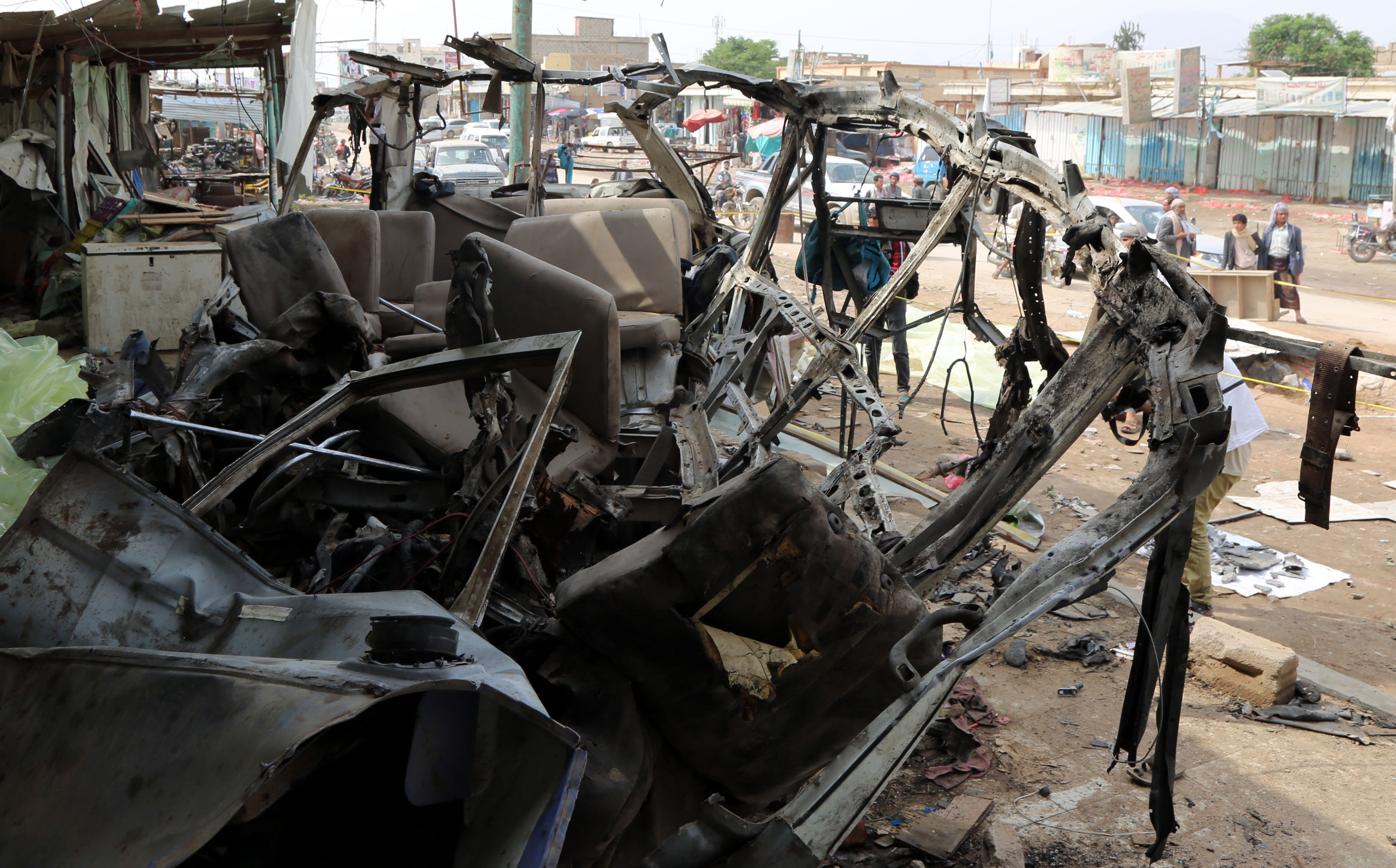
UN Experts Highlight Possible Yemen War Crimes

The aftermath of a Saudi-coalition airstrike in Sa'dah province, earlier this month (Image: PA).
Three experts working for the UN's Human Rights Council have said the governments of Yemen, the United Arab Emirates and Saudi Arabia may have been responsible for war crimes during its battle with Shia rebels.
The allegations include claims of rape, torture, disappearances and "deprivation of the right to life" during the three-and-a-half years of fighting against rebels known as Houthis, the experts said.
In their first report for the council, the investigators also point to possible crimes by the Shia militia, which has been fighting the Saudi-led coalition and Yemen's government since March 2015.
The experts have also chronicled the damages from coalition air strikes, the single most lethal force in the fighting, over the last year.
They are urging the international community to "refrain from providing arms that could be used in the conflict" in Yemen.
Last week, Human Rights Watch (HRW) called on the UK to halt arms sales to Saudi Arabia over a "mountain of evidence" of alleged law violations by the Middle Eastern nation.
In their report, the UN experts said:
"[We have] reasonable grounds to believe that the governments of Yemen, the United Arab Emirates and Saudi Arabia are responsible for human rights violations."
Since March last year, the UN's humanitarian aid agency has said Yemen - already the Arab world's poorest country - is facing the world's worst humanitarian crisis.

The report said three-quarters of its population of more than 29 million need humanitarian assistance.
The war has devastated the country's health system and provided a breeding ground for the world's largest cholera outbreak last year.
The experts cited 6,475 deaths from the conflict between March 2015 and June this year, but said the "real figure is likely to be significantly higher". Other groups have estimated more than 10,000 people.
They also sharply criticised work by the coalition's Joint Incidents Assessment Team, which was set up as a bulwark against possible rights violations.
They questioned the JIAT's explanations for the air strikes that have killed civilians, and challenged its "independence and its ability to carry out impartial investigations".
The experts said nearly a dozen deadly air strikes they investigated over the last year "raise serious questions about the targeting process applied by the coalition".
They chastised some in-the-field coalition combatants for "routinely" failing to seek information about targets on official "no-strike" lists that should have been avoided.









